There are a lot of important decisions that go into owning a home. One of the most important is whether or not to install gutters on your house. Gutters play an important role in protecting your home from water damage, but they can also be expensive and difficult to maintain. In this blog post, we will discuss the pros and cons of having gutters in your house and help you make the decision that is best for you!
What Do Gutters Do?
Gutters are installed on homes and commercial buildings to protect the structure from water damage. They are placed at the edge of the roof, where they collect rainwater and direct it away from the building. Gutters are commonly made out of aluminum, vinyl, and steel. [1]
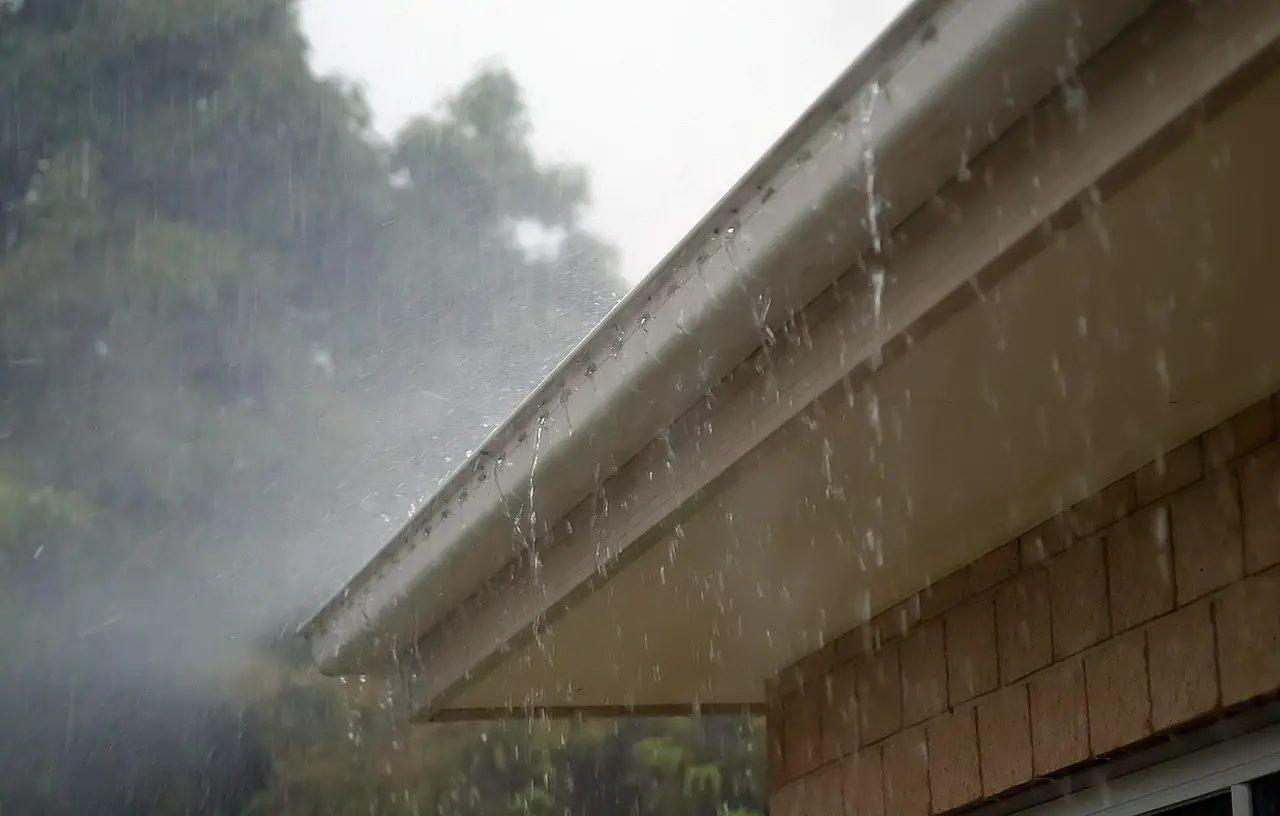
When Gutters Are Necessary?
Slopes
If your home is on a slope, then gutters may be necessary to prevent water from seeping into your basement or crawl space. Without gutters, the water can pool around your foundation and cause serious damage.
Basements
Basements are notorious for flooding and causing expensive water damage. Gutters help to direct rainwater away from your home, preventing basement flooding. Additionally, gutters can help to protect your landscaping by directing rainwater away from delicate plants and flowers.
Overhang
The overhang of your roof is designed to protect your home from the elements. However, without gutters, rainwater can pool on your roof and cause serious damage. By placing gutters on your roof, you stop water leaks and other potential damages.
Clay-rich soil
Clay-rich soil can absorb water like a sponge, which can lead to problems with drainage. If you live in an area with clay soil, you may want to consider installing gutters to help protect your home from water damage. [2]
When Are Gutters Not Necessary?
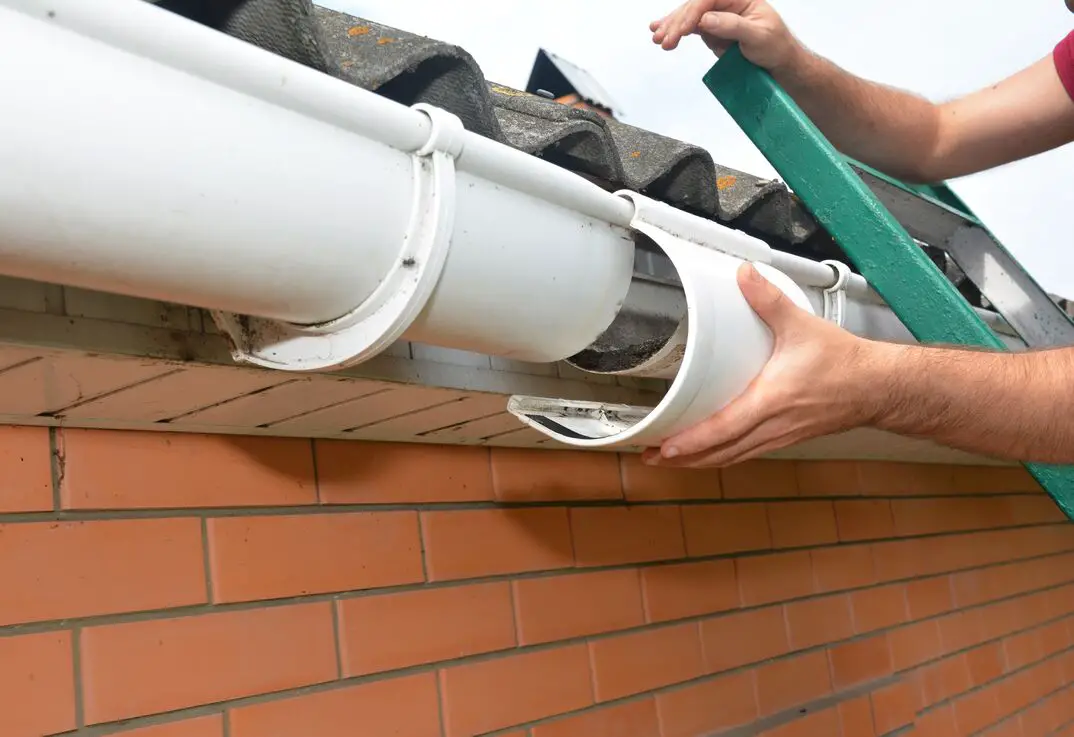
Concrete
Concrete and asphalt roofs don’t need gutters because they are impervious to water. Metal roofs can also do without gutters in some cases, particularly if they have a drip edge that directs runoff away from the building. In other words, if your roof is doing its job of keeping water out, you probably don’t need gutters.
Downward slopes
If your roof slopes downward at least two feet for every 12 feet it extends, you may not need gutters. The steeper the slope, the less need for gutters.
Small roofs
Another factor is the size of your roof. If it’s relatively small — say, under 200 square feet — you probably won’t benefit from installing gutters because there simply isn’t enough surface area for rainwater to collect.
Overhang
The overhang of your roof also makes a difference. If it’s more than a foot, rainwater will probably drip off the edge without hitting the ground.
Weather patterns
If you live in an area with light rainfall and you have a well-designed roof, you may not need gutters. The same is true if your home is sheltered by trees or other buildings that deflect rainwater.
Aesthetics
Some people simply don’t like the look of gutters and downspouts and prefer the clean lines of a roof without them. If this is your preference, you can probably forego gutters without any functional consequences.
Ultimately, whether or not to install gutters comes down to a combination of practical considerations and personal preferences. If you’re unsure about what’s best for your home, consult a professional roofing contractor who can assess your situation and make recommendations.
[3]
How Can I Improve My Gutters?
If you’re not sure whether or not you need gutters, there are a few things you can do to improve your home’s drainage and prevent water damage. First, make sure that your downspouts are clear and unobstructed. Gutters can only do their job if water can flow freely through them, so downspouts that are blocked by debris will cause problems. You should also check the slope of your gutters; they should be sloped slightly so that water can run off easily. Finally, consider installing gutter guards to keep leaves and other debris out of your gutters.
Types of Gutters
There are several different types of gutters to choose from when having gutters installed on your home.
The most common type of gutter is the sectional gutter, which is made up of interlocking sections that are joined together. Sectional gutters are available in a variety of materials, including aluminum, vinyl, and steel.
Another type of gutter is the seamless gutter, which is one continuous piece that is custom-fit to your home. Seamless gutters are also available in a variety of materials, including aluminum, vinyl, and steel. [4]
Sectional vs. Seamless Gutters
So which type of gutter is better for your home? That depends on a few factors. Sectional gutters are generally less expensive than seamless gutters, and they’re also easier to install. However, because they’re made up of interlocking sections, they can sometimes come apart or leak at the seams. Seamless gutters, on the other hand, are more expensive and slightly more difficult to install, but they don’t have any seams that could potentially leak.
Pros and Cons of Gutters
Gutters can be a great addition to your home, but they also have their drawbacks. Here are some pros and cons of gutters to help you decide if they’re right for your home.
PROS:
- Gutters can help protect your home from water damage by channeling water away from your foundation.
- Gutters can also help prevent mold and mildew growth on your home by keeping the area around your foundation dry.
- Gutters can add to the curb appeal of your home by improving its overall look.
CONS:
- Gutters need to be regularly cleaned out to prevent leaves and other debris from clogging them up. This can be a time-consuming and tedious task.
- Gutters can be expensive to install, especially if your home doesn’t already have them.
- Gutters can also be a maintenance nightmare if they’re not properly installed or maintained. Leaks and cracks are common problems that need to be fixed on a regular basis.
So, are gutters necessary for your home? It really depends on your individual needs and circumstances. If you live in an area with a lot of trees, or if your home is prone to water damage, then gutters may be a good investment. However, if you’re not willing to put in the time and effort to maintain them, then you may want to forego gutters altogether.
How to Clean Gutters?
Gutters play an important role in protecting your home from water damage. Without gutters, rainwater can pool around your foundation and seep into your basement or crawl space. Gutters also prevent water from eroding the soil around your home’s foundation.
However, gutters can be a pain to clean. If you don’t clean them regularly, they can become clogged with leaves and debris, which can lead to water damage. Here are a few tips for cleaning your gutters:
- Use a ladder to reach the gutters. Be sure to use a stable ladder and have someone hold it for you while you climb up.
- Wear gloves to protect your hands from dirt and debris.
- Scoop out the leaves and debris with your hands or a small shovel.
- Use a hose to flush out any remaining dirt and debris.
- If your gutters are particularly dirty, you may need to use a power washer. Be sure to follow the manufacturer’s instructions carefully. [5]
How to Install Gutters?
Installing gutters is a home improvement project that many homeowners undertake to protect their homes from water damage. Gutters are installed on the eaves of roofs to collect and channel rainwater away from the foundation and walls of the house. While gutters are not required by building code in most areas, they are considered an important home maintenance item by many experts. There are several things to consider when deciding whether or not to install gutters on your home.
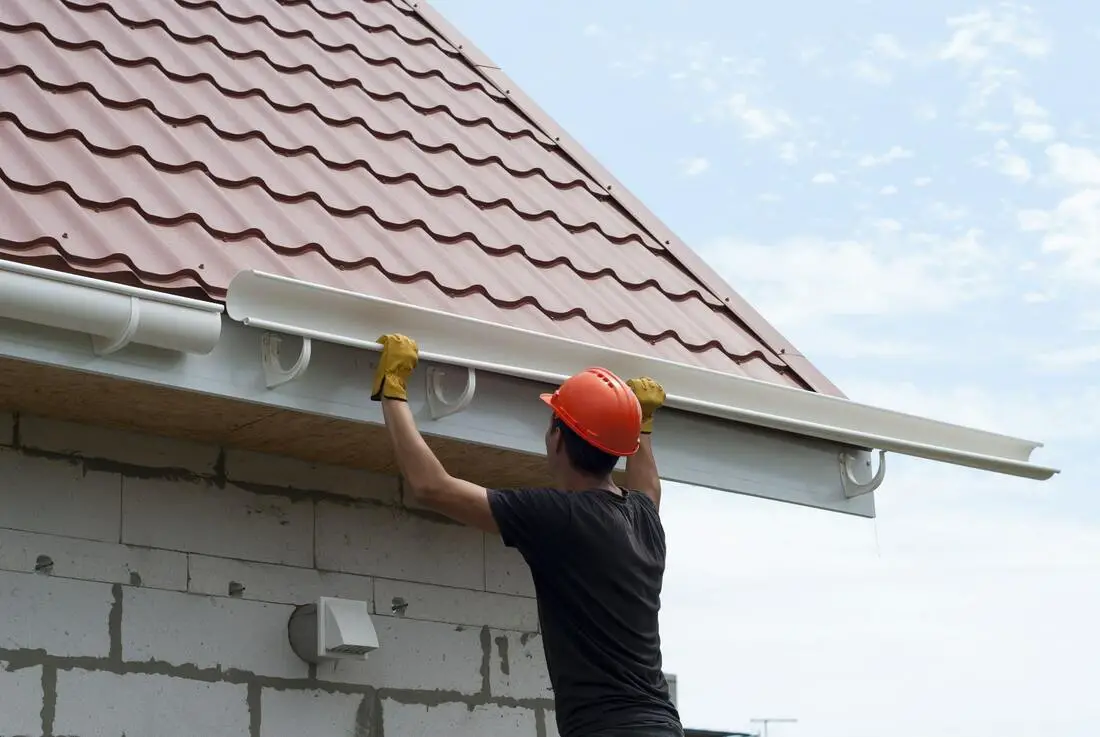
The first thing you need to consider is the climate in your area. If you live in an area with a lot of rainfall, then installing gutters can help protect your home from water damage. Gutters can also help prevent leaks in your basement or crawlspace by directing water away from your foundation.
Another thing to consider is the type of roof you have. If you have a shingled roof, then installing gutters can help extend the life of your roof by preventing water from seeping under the shingles and causing damage. Gutters can also help prevent ice dams from forming on your roof in colder climates.
Finally, you need to think about the aesthetics of your home. While some people believe that gutters are an eyesore, others feel that they add character to a home. Ultimately, the decision of whether or not to install gutters on your home is a personal one. However, if you are considering gutters for any of the reasons mentioned above, then they are definitely worth considering.
FAQ
What happens if you don’t have gutters?
If you don’t have gutters, rainwater can fall directly off your roof and onto the ground around your home. This can cause water damage to your foundation, landscaping, and siding. It can also lead to flooding in your basement or crawl space.
What are the benefits of having gutters?
Gutters help direct rainwater away from your home, which can protect it from water damage. They also help prevent flooding in your basement or crawl space. Gutters can also add to the curb appeal of your home.
Are there any disadvantages to having gutters?
One disadvantage of gutters is that they need to be cleaned out regularly to prevent clogs. Clogged gutters can cause water to back up and overflow, which can lead to water damage. Gutters can also be damaged by heavy snow and ice.
Should you install gutters on your home?
The decision of whether or not to install gutters on your home depends on a number of factors. These include the climate in your area, the type of roof you have, and the slope of your roof.
You should also consider the pros and cons of having gutters before making a decision. If you live in an area with heavy rainfall, snow, or ice, then installing gutters may be a good idea. If you have a flat or shallow-pitched roof, then gutters may not be necessary. Ultimately, the decision of whether or not to install gutters on your home is up to you.If you have any questions about whether or not gutters are right for your home, then be sure to consult with a professional. They can help you weigh the pros and cons of having gutters and make a decision that is best for your home.
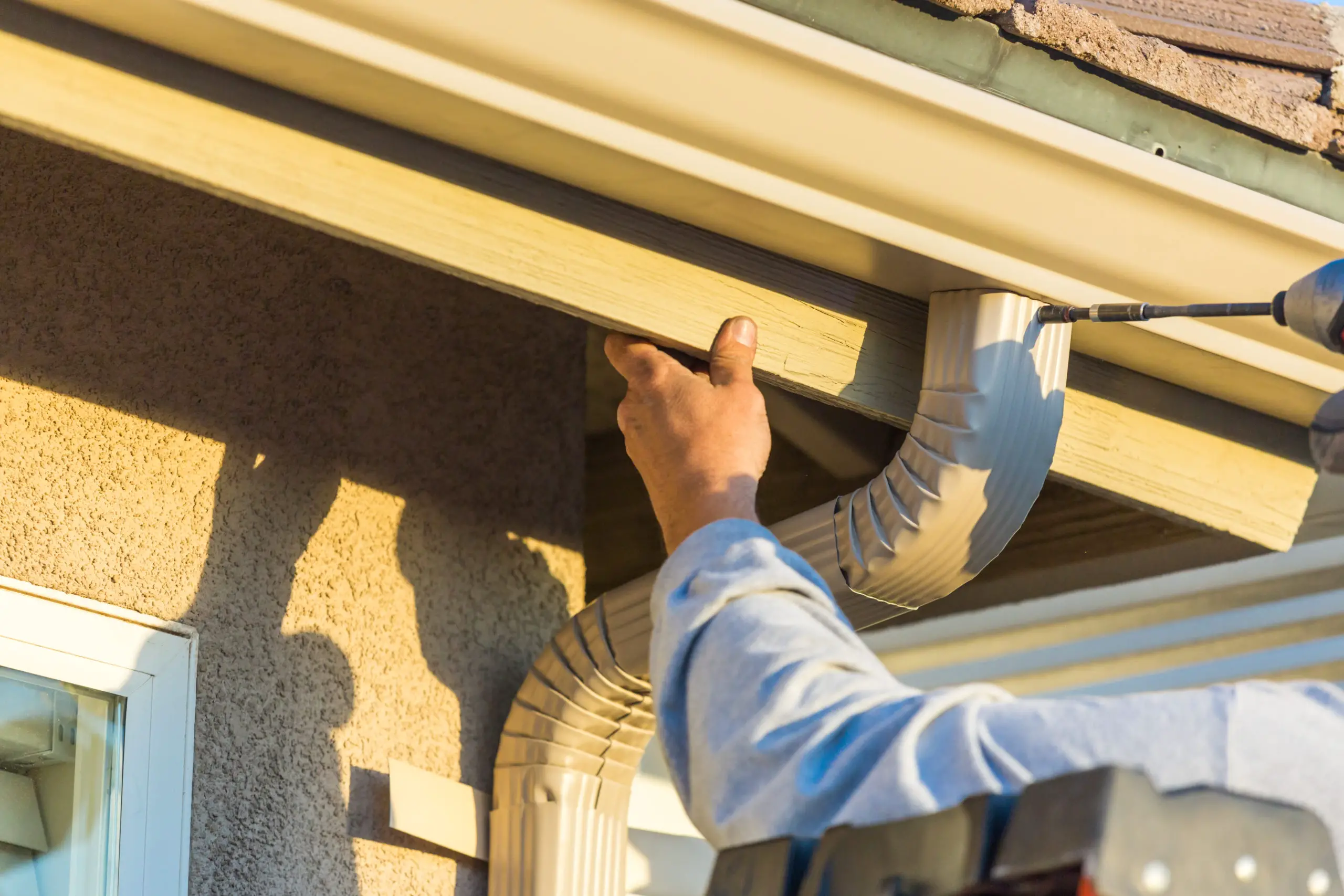
Do gutters make a difference?
The answer is yes, gutters do make a difference. They are designed to protect your home from water damage by channeling water away from your foundation and preventing it from seeping into your basement or crawl space. Gutters also help prevent soil erosion around your home’s foundation and can save you money on repairs in the long run. However, gutters are not without their drawbacks. They can be expensive to install, and if they are not maintained properly, they can become clogged with leaves and debris, which can lead to water damage. Gutters also require regular cleaning to keep them functioning properly.
Why do some houses not have gutters?
The most common reason for not having gutters is the cost. Gutters can be expensive, and some people feel that they are not worth the investment. Additionally, some people believe that gutters are not necessary if the roof is sloped properly.
What can I use in place of gutters?
There are a few different things you can use in place of gutters, depending on your needs and preferences. One option is to install a French drain, which is a type of drainage system that consists of a gravel-filled trench with a perforated pipe. This system can be used to redirect water away from your home and prevent flooding. Another option is to install rain barrels beneath your downspouts. This will allow you to collect rainwater and use it for watering your plants or washing your car. You can also build swales, which are shallow depressions that are filled with grass or other vegetation. Swales help absorb rainfall and prevent runoff from causing erosion.
Useful Video: Do You Need Gutters?
Conclusion
In conclusion, there are pros and cons to having gutters on your home. Ultimately, the decision comes down to personal preference and your individual circumstances. If you live in an area with a lot of rainfall or snowfall, gutters can help protect your home from water damage. However, if you don’t think you’ll need them, you can save yourself some money by skipping the installation. Whichever route you choose, be sure to do your research and make an informed decision!
Thanks for reading! We hope this article helped clear up some of the confusion surrounding gutters. Do you have any other questions that we didn’t cover? Feel free to leave them in the comments below and we’ll do our best to answer them.
References
- https://www.architecturaldigest.com/reviews/home-improvement/are-gutters-necessary
- https://www.bobvila.com/articles/are-gutters-actually-necessary/
- https://www.thisoldhouse.com/gutters/reviews/are-gutters-necessary
- https://guttermaid.com/the-basic-types-of-gutter-systems/
- https://www.bobvila.com/articles/how-to-clean-gutters/
- https://www.thisoldhouse.com/gutters/21016457/how-to-install-rain-gutters










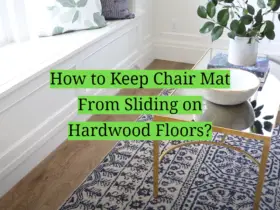



Leave a Reply